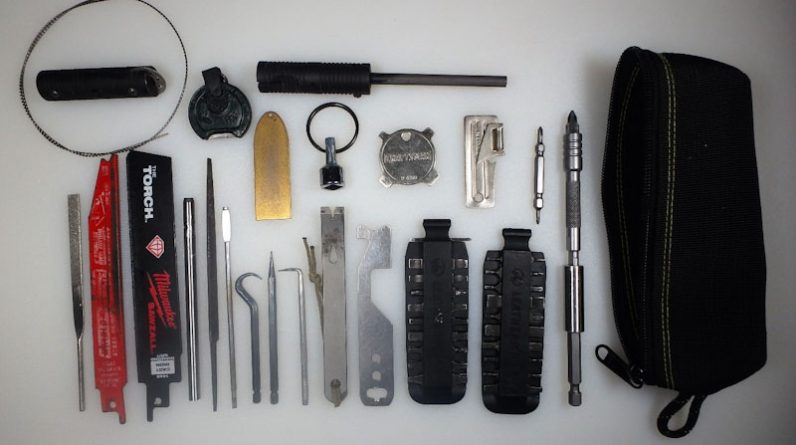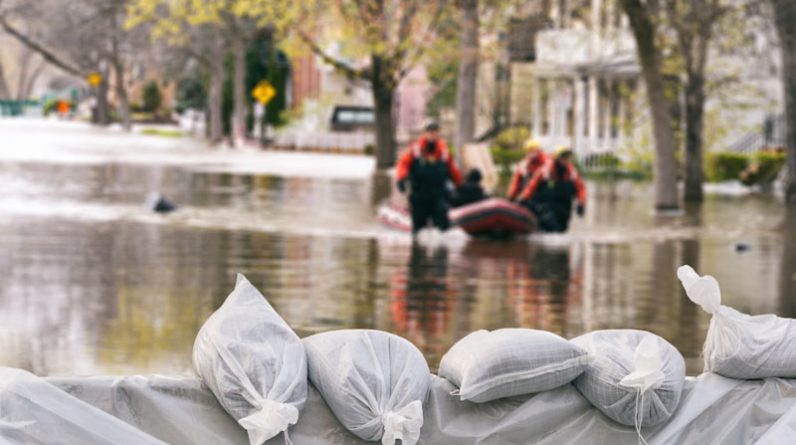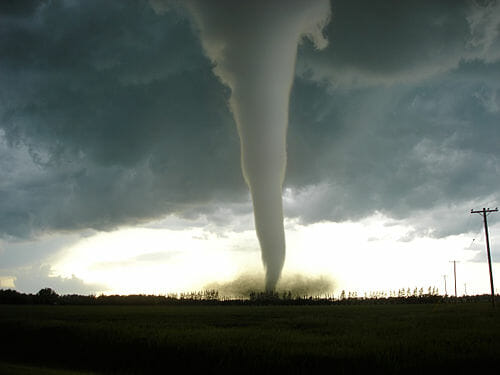In a world of constant uncertainty, prepping has shifted from the fringe to a mainstream necessity. While rural preppers find solace in nature, urban survivalists grapple with navigating concrete jungles where chaos can strike at any moment. The city’s unique challenges, with towering skyscrapers and bustling streets, can be a matter of life or death.
As we delve into urban prepping, we explore the intricacies of a metropolis’s survival, recognizing it goes beyond stockpiling supplies. Urban prepping mistakes are more unforgiving than rural counterparts, with consequences extending beyond inconvenience.
Let’s look at the intricacies of urban survival and expose potentially fatal mistakes beneath the city’s surface. Are you prepared for the challenges or unwittingly setting yourself up for a survival game with stakes higher than you can imagine?
Not knowing the city
Envision a city under the looming threat of disaster, triggering a frenzied exodus. Highways meant as escape routes, transform into immobilizing parking lots, trapping individuals in their cars as a hurricane or a more ominous threat approaches.
To preempt such a nightmare, invest your time wisely. Arm yourself with detailed city maps and explore shortcuts and backroads. Survival hinges on knowing optimal escape routes meticulously marked on your map. In the face of blocked roads, possess the knowledge of alternative paths that could become your lifeline.
Consider utilizing public transportation for unconventional city exploration. Drawing from personal urban experiences, buses became my mode of choice. Rather than succumbing to distractions like music or nonstop phone use, I opted for a different approach. Gazing out of the window during each trip, I was amazed by the various details that often escape notice during routine journeys.
Unearth the secrets of your city before time becomes a precious commodity. Familiarize yourself with its nooks and crannies when stress isn’t breathing down your neck. Remember, the city’s labyrinth becomes exponentially more treacherous when your only exit strategy is born out of desperation. The countdown to potential demise commences the moment you find yourself ensnared in the urban web.
Not having enough supplies
Stockpiling a sufficient quantity of supplies for an extended duration poses a considerable challenge for urban dwellers due to the perennial shortage of available storage space. While it is feasible to amass a substantial quantity of food, whether in the form of cans or MRE pouches, the storage of water presents a distinct hurdle. Water, given its weight and bulk, becomes a particularly vexing issue, leaving most urban preppers unable to store beyond a month’s supply.
Various inventive solutions, ranging from improvisational ceiling structures to the construction of shelves on every available inch of free wall space, have been observed in attempts to accommodate water storage. However, even with such improvisations, preppers relying on these methods express dissatisfaction with the limited volume of water they can amass.
Insufficient supplies leave preppers with only two viable courses of action: either remaining in place and resorting to diverse means to secure necessities (such as scavenging, looting, or awaiting government aid) or executing an evacuation strategy to seek refuge in other regions within the state.
Not bugging out when you had the chance
Certain survivalists advocate for specific time frames for bugging out, ranging from 10 minutes to an hour. However, the reality is that bugging out does not universally adhere to a standardized rule, as individual preparedness, geographical location, and population density all wield significant influence over the success of a bug-out plan.
While it holds true that seizing the opportunity to bug out is essential, the optimal approach involves creating one’s own window of opportunity on a personalized timeline. If you sense that something is awry and has the potential to escalate into a disaster or local crisis, trusting your instincts becomes paramount, signaling the need for evacuation. This presents a critical opportunity to act on your own terms and align with your intuition.
An illustrative example arises from the onset of the COVID pandemic when a select few, heeding their instincts, did not wait for conditions to deteriorate or restrictions to tighten. They departed when their neighbors and friends remained optimistic about their state’s immunity to the pandemic’s impact. Trusting their gut proved to be a life-saving decision, as they emerged with a winning hand, while their counterparts had to rely on others for supplies and shopping assistance.
Bragging about your “prepping lifestyle”
Embarking on the journey to become a prepper demands considerable effort and often unfolds as a meticulous, sometimes tedious, undertaking. Beyond the financial investment in supplies and gear, a myriad of preparations, ranging from bugging out to home defense, demand careful consideration. Upon reaching a commendable level of preparedness, one deserves acknowledgment and praise for their commitment.
Nevertheless, within our community, a noticeable trend of boasting exists. While some individuals may inadvertently showcase their preparedness with the intention of assisting others, there are those who actively seek the spotlight, particularly on social media platforms.
This phenomenon represents an often-overlooked danger that has the potential to jeopardize one’s safety. Broadcasting the details of your supplies and resources can be perilous, especially in densely populated areas. Consider this: if you reside in a crowded city with ample resources, envision where your neighbors might turn for “shopping” when grocery stores are ransacked.
The crucial advice here is to maintain discretion, recognizing that no amount of likes, views, or strangers’ appreciation is worth compromising your safety and, ultimately, your life.
Taking part in the “action”
The essence here lies in the fact that when chaos unfolds, certain individuals find themselves irresistibly drawn into the midst of it all. Whether it’s looting, rioting, or any form of pandemonium, some become active participants simply because it seems like the thing to do – after all, everyone else is doing it. The allure of potential gains, be it a game console, a new TV, or an espresso machine, can be tempting, and the focus is rarely on looting essentials like water and food.
However, the peril lies in joining a volatile crowd, where distinguishing between good and bad actors becomes an impossible task. Even if it’s your first involvement, if some semblance of authority is attempting to restore order, you’ll be treated indistinguishably from others in the chaos. To safeguard your well-being, it is crucial to stay home and avoid the hot zones.
Not planning for home defense
If you find yourself in possession of ample supplies and believe that bugging out is no longer a viable option or that you’ve missed the opportune moment, prepare to fortify your stronghold. Taking proactive measures to defend your home becomes paramount. Strengthen the entrance door, ensure the fire escape stairs remain unobstructed, and equip yourself with the necessary means of self-defense.
Enhancing security can extend to practical solutions such as installing a wireless video camera with an intercom or a Ring doorbell. This not only adds an extra layer of protection but also minimizes the risk of exposing yourself to potential danger. By avoiding the need to open the door and directly interact with uninvited “visitors,” you significantly reduce the chances of compromising your safety during uncertain times.
Becoming a couch potato
A noticeable trend within our community, even among my prepper acquaintances, is that once individuals achieve a certain level of emergency preparedness and feel they have everything under control, a period of relaxation often ensues. Gradually, they let their physical fitness decline and immerse themselves in the comfort they’ve meticulously crafted. I’ve encountered sentiments such as, “Why bother testing my gear more than once? I did it a while back, and everything still works fine.”
I’ve emphasized to them that preparedness extends beyond gear testing; it involves putting oneself out there and discovering how to utilize that gear to its full capacity. This includes finding ways to employ the gear when injured and venturing into nature on good days to acquire new skills.
Putting together the ultimate bug-out bag loses its purpose if you can no longer carry it effectively. Similarly, accumulating firearms and ammunition becomes futile if you’re dedicating fewer and fewer hours to honing your skills at the range. Remaining active is not just a lifestyle choice; it’s a critical element that directly correlates with your ability to stay alive in challenging situations.


Relying too much on external help
In today’s world, reliance on technology for even the most basic tasks, such as simple math or cooking, has become increasingly prevalent. A concerning trend is highlighted by reports that many college students lack fundamental cooking skills, resorting to online searches for basic information like boiling an egg.
While technology brings convenience, it can also pose a significant threat when inaccessible. Dependency on GPS for city navigation, limited cash on hand with reliance on ATMs, and a declining interest in cooking are indicative of a broader issue. Our comfort-seeking tendencies, coupled with a reluctance to utilize our skills and critical thinking, leave us vulnerable.
In a crisis, the inability to navigate without GPS or access cash due to ATM reliance could prove disastrous. It is crucial to develop survival skills beyond the digital realm, considering scenarios like Internet outages or prolonged blackouts. The question to ponder: Can you endure and thrive independently when the usual conveniences are no longer available?
A closing word
These common mistakes among urban preppers exacerbate the challenges of emergency preparedness. This article encourages a rethink of survival strategies and priorities. In city emergencies, whether natural or human-made, help may be delayed or non-existent. Survival demands proactive preparation tailored to urban challenges.







